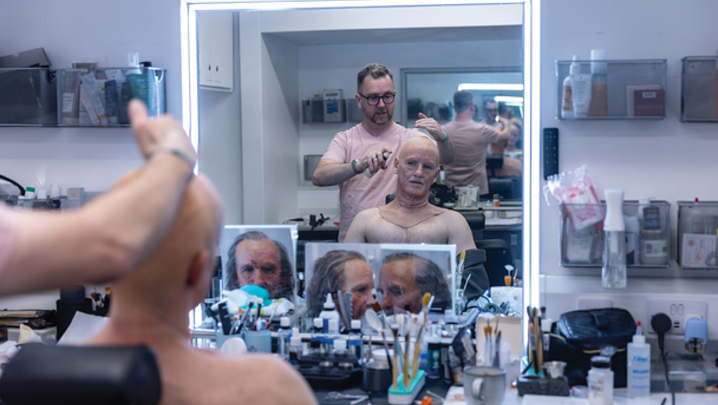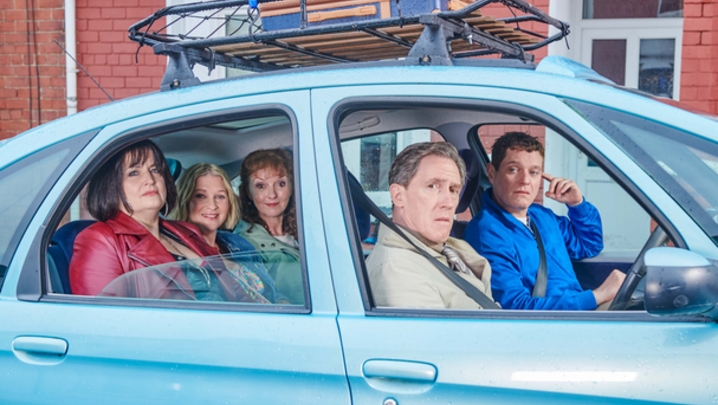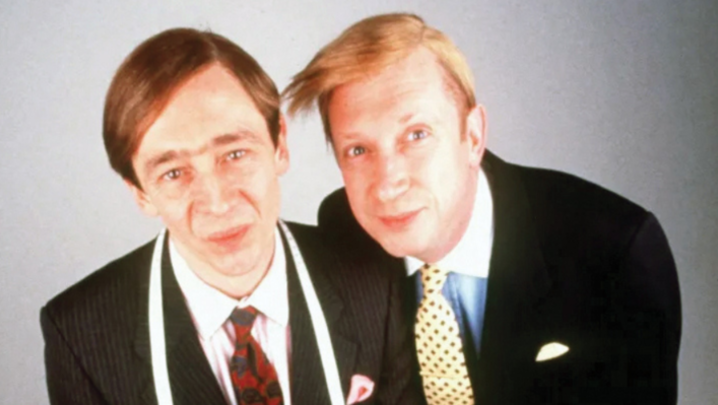Boyd Hilton interviews Jed Mercurio, whose edgy approach to his craft has transformed storytelling on TV
Jed Mercurio doesn't make it easy for himself. His current show, Sky 1's Critical, is a 13-part drama set in a state-of-the-art trauma centre. Every week, it focuses on a different and gruesome medical emergency while also telling the intertwined personal stories of its large cast. Oh, and it's told in real time, too.
"I always think that everything is achievable," he says, when I ask if he deliberately set the challenge of making this series as hard as possible for himself.
"My instinct was that those limitations would intensify the viewing experience." It palpably has, pushing back the boundaries of medical drama, and not just by showing us such grim sights as a woman with a spike through her face in unflinching style.
As we speak, in a central London café, Mercurio is on a break from supervising the editing of a later episode of Critical.
To all intents and purposes, he is the showrunner but Mercurio doesn't necessarily embrace the term.
"I'm very fortunate to be in the position of having a voice in every aspect of the production, especially the technical side, but I don't get hung up giving it a title. I just kind of do it."
He is also at pains to point out that the whole process is still a huge collaboration. Mercurio has his say in every element of Critical but, of course, it wasn't always thus.
His was an extraordinary route into TV drama. Twenty-two years ago, he was working as a doctor when he stumbled across an ad in the British Medical Journal placed by Tony Garnett's Island World Productions (which went on to make This Life and The Cops).
The company was interested in developing a new TV medical drama and Mercurio, without any prior professional writing experience, submitted some "weak material I'd written for a medical review".
He was invited to an interview and spent an hour describing what it was like being a junior hospital doctor. A couple of weeks later, he was asked to write a synopsis of how a series might work depicting what it was really like working in the NHS in the early 1990s. So Cardiac Arrest was born.
He credits veteran producer Margaret Matheson for encouraging and enabling his move into TV drama, as well as Garnett himself. "They took an enormous leap of faith," he says. "I reckon they managed to get it on air at the BBC mainly because it was so cheap and the BBC thought, 'Why not?'"
Key to the success of Cardiac Arrest and his later medical drama Bodies – the latter was shown, rather incongruously, on BBC Three – was their no-holds-barred, insider's portrayal of the hectic, gruelling, under-staffed world of the NHS.
"I definitely had a voice and a view that was highly contradictory of what medical drama was doing at that time," recalls Mercurio. "There were certain conventions within the genre that were repeatedly observed and felt so out of date to me.
"My approach to it was to just try and tell a version of what the reality was. I was naive enough to think that I could represent the reality of the hospital precinct and how that world worked."
He was also naive about how involved in the production he would be allowed to be. It soon became clear on Cardiac Arrest that "a lot of decisions were being made by people who had no experience of what was being depicted in the script. I was very much held at arm's length and I felt marginalised."
When the series was recommissioned, Mercurio played it differently. "I wanted to be involved in casting but I was excluded from that. And I didn't think the reasons for my exclusion made any sense.
"There was just a desire by some of the people involved in the series to have as much control as they could. And they would get that by excluding the writer. It's also possible that they didn't like having me around."
So, to guarantee that he had to be around, Mercurio made sure he became the series's medical advisor. He was always on hand to communicate with the cast and director concerning every moment of medical procedure. And it worked.
The whole experience gave Mercurio the confidence to lobby for more influence on the shows that he wrote, from Bodies to the massive critical and popular hit Line of Duty.
If you have a scene that isn’t advancing the story, why is it there?
When asked about the thorny topic of accuracy in TV drama (as we meet, Chris Chibnall has just gone into print to defend series two of Broadchurch from accusations of inaccuracy in its depiction of the finer points of the criminal justice system), Mercurio draws a deep breath and lets rip.
First, he explains, high levels of technical accuracy and story credibility are very different matters: "There are things that happen in the real world that aren't credible in a TV drama."
Then, there are the so-called experts who complain about factual inaccuracies in his own shows. He says: "I am shocked about some of the stupid things doctors have said about medical dramas and it worries me that they are clinically weak.
"My favourite idiotic remark was by a guy who said he thought the clamshell use in Critical was woefully inaccurate because he'd seen one in 1980. And they didn't do it that way.
"I mean, these are the kind of idiots who go on Twitter and make comments – you can always find some idiot who thinks he knows best."
Mercurio goes on to explain how important the police advisors were on Line of Duty but, even then, he emphasises that writers and producers have to find the right ones – who really know what they're talking about.
The conversation shifts from the accuracy issue to Mercurio's writing technique, which seems to have got more focused as his career has developed, with ever-tighter plots and leaner, more powerful narratives.
Sometimes, he says, he maps out the whole story, while at other times there's a basic outline and he trusts himself to knit together the plot details as he goes along.
He maintains, however, that he is ruthless at getting rid of stuff he knows isn't working: "I'm interested in very direct forms of storytelling. If you have a scene that isn't advancing the story, why is it there?"
Indeed, it's nigh-on impossible to find a scene in either series of Line of Duty that doesn't advance the story.
Every now and then, Mercurio reminds himself of theories of character and structure and storytelling. But, using one of many sporting analogies during our conversation, he explains: "My relationship with those things is like the relationship a professional sportsman has with his coach. You can look at small details but, fundamentally, my swing works."
If that sounds arrogant, he doesn't mean it that way, and has a wry smile when he says it. He just knows his own worth and his own method.
"I have a reel running in my head of what a scene should look like, so, when I see it being filmed or at assembly, I can compare that to what I have in my head," he says. "The same goes for the way I deal directly with the cast about what I was going for when I wrote their characters."
When he has finished with this series of Critical, Mercurio will move on almost immediately to the filming of series three of Line of Duty.
And there's also the unusual prospect of a Mercurio classic period piece: a one-off, feature-length BBC version of Lady Chatterley's Lover on the way, which he adapted and directed.
He's directed a few episodes of shows before, but admits it's not his usual preference. "Since I've been doing these longer-running precinct dramas, it's been hard to step out of the role I do. Being the director takes you out of the loop on a whole load of other decisions.
"It's like a manager running on to the field and deciding he's going to play an anchoring midfield role. You lose sight of the game." Mercurio pauses. "Actually, I wouldn't play an anchoring midfield role. I'm much more of an attacking midfielder. A creative player." Yet another sporting analogy. But a very apt one.






